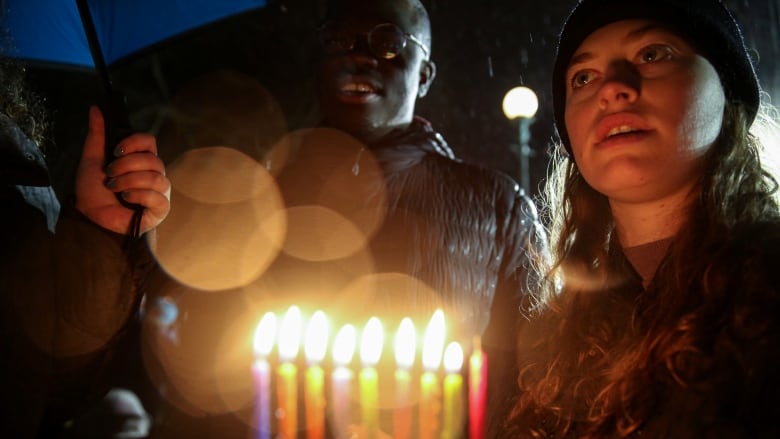by Michael Zank
On December 10, it was a shooting at a kosher Deli in Jersey City, New Jersey. On the seventh night of Hanukah, it was a machete attack on Hasidic Jews in Monsey, New York. In both incidents, people were targeted not as individuals but because they were Jews. Why has there been so little response to these events? Have our leaders and pundits become inured to violence against Jews, just as non-Muslim society has become inured to violence against Muslims, white society to violence against African Americans, and straight people to violence against LGBTQ people? Has our sense of a commonwealth shrunk to the size of tribes that we can no longer see the maiming of an orthodox Jew as an attack not on their world, but on ours?
Our first obligation is to comfort the mourners. At times like these, we are particularly consoled by acts of cross-communal solidarity. Muslims forming a human chain around a synagogue in Pittsburgh. Jews raising money for the victims of the Christchurch, New Zealand, mosque attack. It matters that our solidarity crosses communal lines. It signals we are in this together. No one should feel alone and abandoned in the face of senseless acts of violence. We must reach out to one another and assure those attacked: you are not alone. This must be our message today, especially for our students: you are not alone! We are here and we are with you. You are loved, and you are safe.
Perhaps the silence can be explained by the fact that Rockland County, Jersey City, and other New York suburbs represent a special case. As has been widely reported, Hasidic Jews– the fastest-growing segment of the American Jewish community– have been displaced from their native Brooklyn by the skyrocketing costs of real estate. As Hasidic Jews move to the suburbs, many locals are priced out. The response among some politicians has been to cash in on the growing anti-Hasidic resentment. Their rhetoric has since crossed the line into anti-Semitic territory. Incendiary rhetoric has an effect. It incites blind and indiscriminate hatred against an entire community. In this case, against an exclusive religious community widely perceived as recreating old world shtetls in modern America. But the disagreements, such as differences over school boards and housing developments, that arise between long standing community members and their new neighbors need to be resolved in a civil manner. We call on both Hasidic and non-Hasidic suburbanites of New York and New Jersey to resolve their differences peacefully. In the interest of our commonwealth. We also call on politicians to curb their rhetoric and refrain from further incitement. All of us must resist the rhetoric of polarization and the temptation of tribalism.
Let these most recent acts of violence be a wake-up call to all of us. Violence means failure. There are social consequences to economic inequality and to the rhetoric of exclusion. We must return to building a more just, more capacious society, together. We must settle our differences with civility. And today, we offer our solidarity to our Hasidic brothers and sisters. May they be comforted among the mourners of Zion.
In the photo attached to this post: A woman holds candles while standing in solidarity with the victims after an assailant stabbed five people attending a party at an Hasidic rabbi’s home in the hamlet of Monsey, in the town of Ramapo, N.Y. (Amr Alfiky/Reuters)


This blog is very great
This blog information is very great